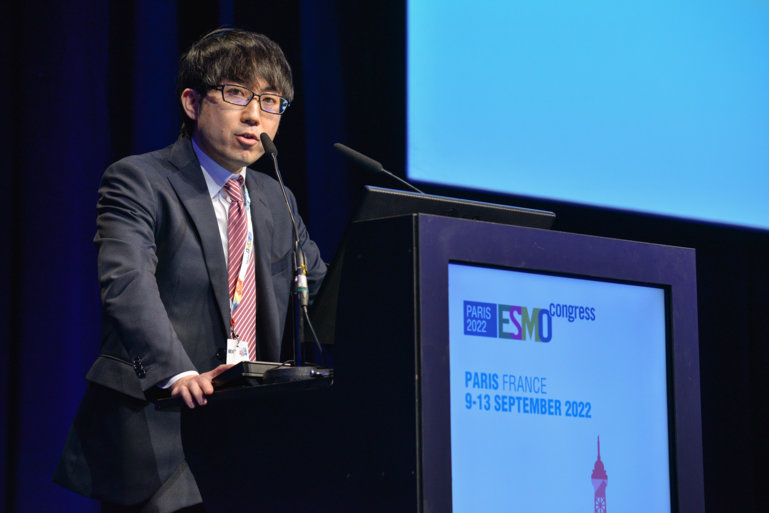
The first randomised study of peptide receptor radionuclide therapy in pancreatic NETs met its primary endpoint
In the OCLURANDOM trial, progression-free survival was longer in patients receiving lutetium-octreotate versus sunitinib

In the OCLURANDOM trial, progression-free survival was longer in patients receiving lutetium-octreotate versus sunitinib

Immunotherapy typically requires intravenous administration, but this may not be the optimal or preferred route for all patients

Patients with resected stage II–III CRC may benefit from earlier detection of recurrence, enabling more to receive surgery with curative intent, but further work is needed to determine the most reliable and cost-effective methods of follow-up

Encouraging clinical activity was reported for fruquintinib and the combination therapy of trastuzumab plus tucatinib in heavily pre-treated patients with manageable safety profiles

Results of a small phase II trial may open up a new option for some patients with leukoplakia, but toxicity of immunotherapy is high and questions remain about its utility in clinical practice

Although further evidence is needed, targeting mutant KRAS with novel agents and combinations may offer new options for patients with advanced colorectal cancer

Side-effects may occur at unpredictable timepoints during a patient’s treatment journey and even after treatment cessation

Recent evidence shows the potential of immunotherapy to change the treatment landscape of triple-negative breast cancer (TNBC), where historically, chemotherapy has been the only systemic option. But, how do we choose what therapy to give which patients?

IMmotion010, CheckMate 914 and PROSPER miss their primary endpoints: back to square one for adjuvant immunotherapy?

Although not immediately practice-changing, impressive results from the NICHE-2 trial may open a way to a ‘watch and wait’ approach for some patients
This site uses cookies. Some of these cookies are essential, while others help us improve your experience by providing insights into how the site is being used.
For more detailed information on the cookies we use, please check our Privacy Policy.
Necessary cookies enable core functionality. The website cannot function properly without these cookies, and you can only disable them by changing your browser preferences.